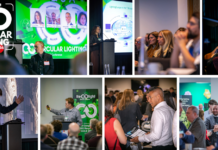
A £3.1m grant from UK Research and Innovation (UKRI) has been awarded to three firms for an ambitious chemical recycling project that aims to make hard-to-recycle plastic packaging recyclable.
The collaboration brings together Recycling Technologies, a specialist plastic recycling technology provider; Neste, a leading provider of renewable diesel, sustainable aviation fuel, and a forerunner in drop-in renewable and circular chemical solutions; and Unilever, the consumer goods manufacturer of leading global brands. The three say they will collaborate to further develop and harness chemical recycling to recover and reuse plastic packaging that is currently either incinerated, buried in landfill or exported from the UK.
In this three-year project, Recycling Technologies will take waste plastic packaging and process it using its recycling machinery to turn it into an oil, called Plaxx®. This material will then be delivered to Neste to analyse and test its quality and suitability for further upgrading it into high-quality drop-in feedstock for the production of new, virgin-quality plastics, such as plastic packaging. Unilever, joining an already well-established collaboration between Recycling Technologies and Neste, will bring insight on design for recycling for packaging.
The grant will help assist, support and refine the testing and any improvement of Recycling Technologies’ chemical recycling plant being built currently at Binn Farm in Perthshire, Scotland. This collaboration will allow the company to improve its systems to process waste plastic optimally to upgrade the Plaxx® so it can be easily further refined at Neste’s facilities into high-quality feedstock for the manufacture of new plastics. The alliance will demonstrate new added-value applications for hard-to-recycle waste plastic materials, such as films, sachets and pouches, using them to create output that can be used to make new packaging.
Neste has extensive experience of handling low-quality waste and residue raw materials, such as renewable waste and residue oils and fats, and processing them into high-quality products. Neste is committed to developing scalable solutions to accelerate plastics recycling with several partners and aims to introduce liquefied plastic waste as a refinery raw material to replace fossil oil use in the production of feedstock for new plastics. Its collaboration with Recycling Technologies enables Neste to accelerate the development of one of the very promising chemical recycling technologies.
Adrian Griffiths, Founder and Chief Executive of Recycling Technologies, said,
“We are delighted to have been awarded this grant from UKRI to move the UK to the forefront of the next generation of plastic recycling systems. Our collaboration with Neste will allow us to refine and improve our technology to produce valuable feedstock from waste plastic that can be incorporated into the petrochemicals industry supply chain to increase the content of recycled plastic in new plastic production. Our work with Unilever will identify hard to recycle plastics from current mechanical recyclers and how to evolve their design construction to improve their recyclability, ensuring compatibility with Recycling Technologies’ chemical recycling process, for incorporation into new packaging.”
Mercedes Alonso, Executive Vice President, Renewable Polymers and Chemicals from Neste, said,
“We are excited to have Unilever join the project that builds upon Neste’s ongoing collaboration with Recycling Technologies. UKRI funding for this ground-breaking joint project helps speed up the development of chemical recycling. It enables us project partners to generate new data on how design for recycling could best be geared towards increasing recycling rates of those types of packaging waste that to this day have not been recyclable. Collaborative efforts like this one across the plastics value chain are key to accelerating the transition to a circular plastics economy,”
Sebastian Munden, Executive Vice President, Unilever UK & Ireland, said,
“We’re really pleased to be part of this collaboration with Recycling Technologies and Neste, developing a solution for plastic which is currently difficult to recycle, including plastic films and flexible packaging.
“As part of this collaboration, we’ve committed to looking at the design of our products for greater recyclability, as well as the possibility to use the recycled material back in our product packaging, which would create the end market and value for the materials.
“Unilever is committed to halving the amount of virgin plastic we use in our packaging by 2025, including increasing our use of recycled plastic. Collaboration between partners and industry experts is so important, as together we can develop solutions with innovations that are effective and scalable”.







